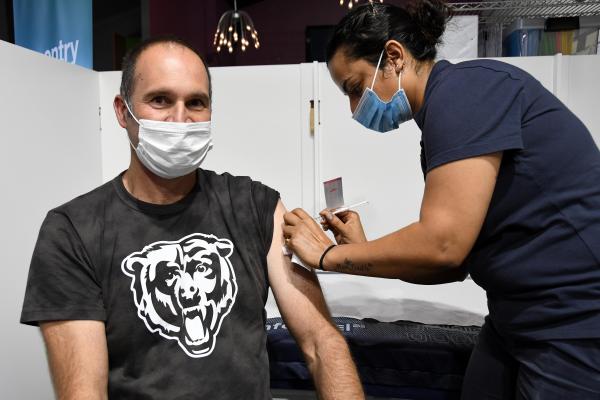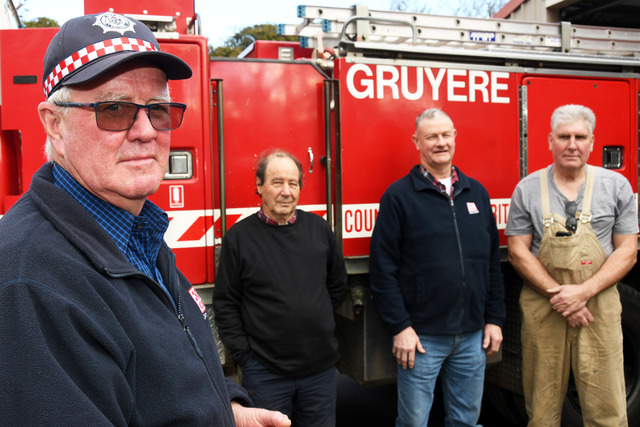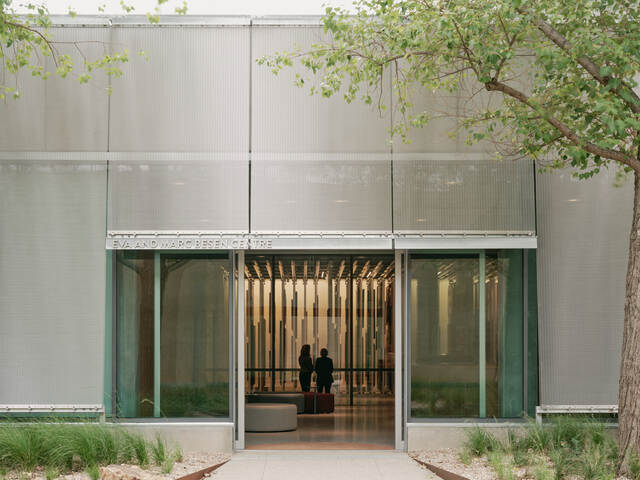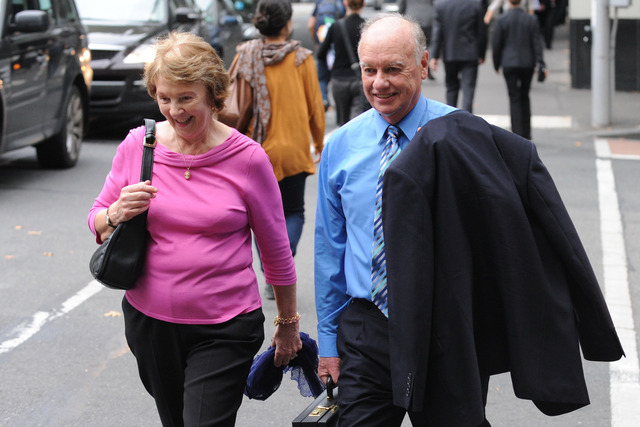As Australia’s vaccination rate slowly increases, we edge closer to a ‘normal’ life without facemasks and lockdowns.
Approximately 13 per cent of all Australians are fully vaccinated, while a more promising figure of about 30 per cent have received their first dose.
As many cities deal with ongoing outbreaks of the virus, Eastern Health GP Dr Vishal Patil urged those who are eligible for the vaccine, to do their bit in Australia’s efforts to beat the pandemic and go and get their jab.
He spoke with Star Mail in the hopes of quelling any hesitancy or concerns surrounding the Covid-19 vaccine.
Dr Patil said a common reason for vaccine hesitancy was a fear of developing blood clots from the AstraZeneca vaccine.
“The risk of getting a clot is quite low as compared to the risk of dying from getting the Covid infection.”
The Australian Technical Advisory Group on Immunisation (ATAGI) recommends Pfizer vaccine as the preferred vaccine for those aged 16 to 59 years, but the AstraZeneca vaccine can be provided to people aged 18 to 59 years of age.
“Currently, the AstraZeneca vaccine is quite widely available in almost all regional practices. And the current data is saying, which is coming from the Australian Department of Health, that people above 60 should have been vaccinated (with AstraZeneca). But there’s only 15 per cent who have had their second jab at this point in time.”
Dr Patil estimated the risk of developing a blood clot to be 1.4 in one million, much lower than than the rate of death from contracting Covid-19.
“We’re not even talking about the rest of the complications which people can end up living with after a Covid infection.”
He noted that the deadly Covid-19 outbreak in the UK saw many citizens take up the offer of the AstraZeneca vaccine, which has caused the Covid-19 death rate to plummet.
“If you take the Covid vaccine rollout in the UK, the numbers are coming and yes I agree their cases and infection rate is there. However the deaths are one-twentieth for the people who have taken the vaccine.
“The rate has gone down significantly when comparing their previous wave and the current wave… It’s that data that is showing that this vaccine does work,” he said.
“Let’s take the example of the UK. Our health system and the UK health system is almost the same. Their NHS and our Medicare is almost the same. If you look at their immunisation rate with the AstraZeneca, people right from 18 to everyone pretty much had the AstraZeneca there and there’s not that many complications.”
Dr Patil assured that any vaccine is rigorously tested before being administered to the public.
“Some of the points people are worried about, is this vaccine being developed too quickly? Well that’s not the case. When these vaccines were developed there was great collaboration between the scientists, with the companies who are making it and the companies who are doing the distribution.
“The vaccine companies have gone through the proper process to the TGA (Therapeutic Goods Administration), it was never rushed or anything. The TGA has given the permission as per the routine process rather than any quick process.
“There’s no emergency pathway to get the vaccine through the approval process.
“We have almost close to 30 per cent of the Australian population who have had their first jab, which is well done to them that they have played their part. Now everyone else has to play their part in their community to fight against this virus.”
On one side there is the hesitancy for the Covid-19 vaccine, while there is also a small pocket of the population who remain vocal with their views of being anti-vaccination.
In response, Dr Patil shared the story of a man from New South Wales, who passed away after contracting the virus, but had been eligible to receive the vaccine.
“There is a very clear case, unfortunately this man, who didn’t want it and had the opportunity to take it before the New South Wales outbreak, he died because he didn’t take the vaccine. He was against the vaccine.
“There are multiple examples, just even in Australia, we had the outbreak in Victoria and there was a gentleman in a nursing home. He had both doses of the vaccine, he got the Covid infection but he wasn’t being admitted to the ICU, he had just the normal cold symptoms, which is really great news.
“He had Covid and he didn’t even know that he was Covid positive. It was so light, the symptoms he had.”
Dr Patil also encouraged Yarra Ranges residents to check-in with their family members, in particular, parents and grandparents to ensure they have organised their vaccination or have the relevant health advice concerning the vaccine.
“Ask them to go and see their regular GP to have this discussion,” he said.
And while those under 60 can receive the AstraZeneca jab, Dr Patil said for those interested, to book an appointment with their GP.
“We do get people who are requesting for the AstraZeneca and I would encourage them to please go to your GP to talk about the benefits versus the risk and have their vaccine depending on what they and their GP decide.”
The Federal Department of Health has a vaccine eligibility tool that lets Australians know when they can receive their vaccine.
Dr Patil said it’s handy for those who may not realise they are entitled to receive their vaccination due to having another health issue. The tool recommends which vaccine is suitable depending on a person’s potential underlying health conditions and whether their job is in a high-risk industry.
“If you are confused, if you are hesitant, please have your information from reliable sources like your GP. Go and talk to them and then decide what you’re going to do. But I strongly recommend doing your role to protect your community against Covid.”
For more information about Australia’s vaccine rollout and to view the vaccine eligibility tool, visit: https://www.health.gov.au








